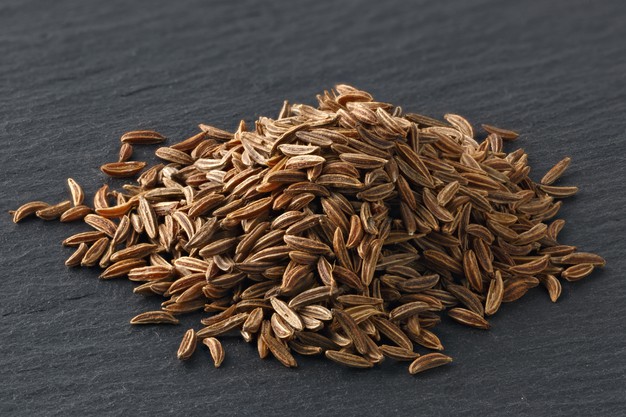Oil, which is extracted from soybean, is generally known as soybean oil. It is considered as one of the most nutritious vegetable oils, which offers numerous health benefits.
Characteristics
- It is liquid in room temperature
- It is pale yellow in colour
- It has a bland taste and does not contain too much flavor
- It has high smoking point about 230°C, which makes it ideal for high heat cooking purposes
Process of extraction
- At first the soybeans are cleaned properly for removing impurities. Often magnets are also used for eliminating metals from it
- Then the beans are subjected to dehulling process, where the hulls are removed
- Mechanical rollers are used for rolling soybean into thin flakes that is accountable for splitting oil containing cells
- Then the beans are subjected to solvent extraction process. Hexane is commonly used as solvent in this extraction method, which helps to clean the oil from the flakes
- After the complete removal of oil, the solvent is separated from both soybean oil and flakes. The flakes are further steamed and heated for recovering the residual solvent
- The desolventized flakes are used as an imperative by product of soybean and they are tremendously rich in proteins whereas the desolventized oil is further processed and refined to produce edible soybean oil


Nutritional profile
- It contains both saturated and unsaturated fatty acid and the amount of unsaturated fatty acid, especially PUFA are found comparatively higher in soybean oil
- It is estimated that soybean oil contains about 16% of saturated fat, 23% of monounsaturated fat and about 58% of polyunsaturated fat
- It contains palmitic acid and stearic acid as saturated fatty acid
- It contains oleic acid as monounsaturated fat
- It also contains significant amount of linoleic acid and alpha-linolenic acid as polyunsaturated fat thus it is considered as a good source of omega-3-fatty acid
- It contains phytosterols as well that plays significant role in decreasing cholesterol concentration in body
- It also contains several fat soluble vitamins and significantly rich in Vitamin K
Health benefits
Role on cardiac health
- Soybean oil contains various cardio protective nutrients thus its consumption is very beneficial for promoting cardiac health
- Omega-3-fatty acid found in soybean oil significantly reduces the risk of developing cardiovascular diseases
- Its polyunsaturated fatty acid contents are responsible for improving cardiac functionality in many folds
- It is closely related with decreasing cholesterol concentration in blood and it has seen that beta-sitosterol component of soybean oil plays vital role in reducing cholesterol storage in body thus its consumption is considered as an effective measure for reducing total body cholesterol percentage
- Its cholesterol lowering effect decreases the prevalence of atherosclerosis, which ultimately lessen the risk of developing coronary artery disease
- It also lowers the susceptibility of heart attacks or strokes
- It has seen that soybean oil contains right proportion of saturated and unsaturated fat thus its inclusion in regular diet helps to maintain normal cholesterol level, which ultimately reduces the risk of developing various cardiac problems thus individuals with hypercholesterolemia and cardiovascular diseases should include soybean oil in their diet

Role on skeletal system
- Soybean oil helps to provide a positive impact on the growth and development of bone
- Soybean oil contains significant amount of Vitamin K, which is essentially required by the body for synthesizing a protein named osteocalcin that helps to produce healthy bone tissues
- It also helps to increase bone mass
- Calcium component of soybean oil is also related with improving bone strength
- It helps to improve bone mineral density as well thus plays significant role in reducing the prevalence of bone fractures
- Isoflavones components of soybean oil also play imperative role in reducing the risk of developing osteopenia as well as osteoporosis
Role on nervous system
- Consumption of soybean oil is very effective for improving the overall functionality of nervous system
- Vitamin K, linolenic acid and linoleic acid components of soybean oil act as the potential source of EPA (ecosa pentanoic acid) and DHA (docosa hexanoic acid) both of which are required by the body for promoting proper development of brain
- It helps to promote cognition
- It is also associated with improving memory
- It exerts neuroprotective effect as well, which helps to protect neurons from oxidative damages hence decreases the susceptibility of developing neurological disorders
- It has seen that consumption of soybean oil is very much useful for preventing various cerebrovascular as well as neurodegenerative disorders


Role on eye health
- Its antioxidant activity is responsible for protecting the eye from free radical induced oxidative damages thus plays imperative role in promoting vision and also helps to decrease the risk of developing eye disorders like cataract, macular degeneration, loss of vision etc
- Omega-3-fatty acid components help to shield the cell membrane of eyes including the fragile parts
- Its Vitamin E component is also associated with improving the functioning of retina
Role on skin
- It plays significant role in improving skin health
- Its Vitamin E component exerts strong antioxidant activity that helps to protect the skin from oxidative damages and decreases the prevalence of skin disorders
- It is also associated with delaying ageing process thus its consumption is very effective for preventing premature ageing
- It helps to moisturize the skin by improving the moisture retention capacity
- It has seen that application of soybean oil on skin significantly improves its natural barrier function
- Its isoflavones and linoleic acid components are also responsible for providing proper nourishment to the skin
- It helps to protect the skin from the harmful effect of UV radiation as well

Other health benefits
- It helps to boost the immunological responses of the body
- It helps to reduce the prevalence of fatty liver disease and the formation of gall stones
- It also helps to promote fetal development
Culinary uses
- It can be used as cooking oil
- As it has high smoking point thus it can be easily used for preparing various fried items, roasted items and baked items
- It can be used in salad dressing as well
Recent findings
- Recent studies have shown that nanoencapsulation of polyphenolic extract found in Ferula persica into soybean oil significantly improves the antioxidant activity and antioxidant stability of soybean oil (Estakhr et al., 2020)
- According to current researches it has seen that soybean germ oil helps to decrease cholesterol concentration. It is associated with preventing cholesterol absorption by inhibiting the gene expression of Niemann–Pick C1-like 1 protein or NPC1L1. It is also related with increasing bile acid excretion by regulating the gene expression of liver cholesterol-7α-hydroxylase (CYP7A1), which is also considered as an important feature of soybean germ oil that helps to reduce cholesterol level in body (Zhu et al., 2019)
- Current studies have shown that the antioxidant activity of polyphenolic compounds, extracted from germinated pulse are greatly increased if they are treated in stripped soybean oil-in-water emulsions (Xu et al., 2018)

General consideration of using Soybean oil
- It is better to store soybean oil in a dry and dark place
- It can also be kept in refrigerator
- It should be kept away from heat
- It is better to avoid the consumption of rancid soybean oil

Source:
Estakhr, P., Tavakoli, J., Beigmohammadi, F., Alaei, S. and Mousavi Khaneghah, A., 2020. Incorporation of the nanoencapsulated polyphenolic extract of Ferula persica into soybean oil: Assessment of oil oxidative stability. Food science & nutrition, 8(6), pp.2817-2826.
Gangidi, R.R. and Proctor, A., 2004. Photochemical production of conjugated linoleic acid from soybean oil. Lipids, 39(6), pp.577-582.
Hammond, E.G., Johnson, L.A., Su, C., Wang, T. and White, P.J., 2005. Soybean oil. Bailey's industrial oil and fat products.
Lemke, S.L., Vicini, J.L., Su, H., Goldstein, D.A., Nemeth, M.A., Krul, E.S. and Harris, W.S., 2010. Dietary intake of stearidonic acid–enriched soybean oil increases the omega-3 index: randomized, double-blind clinical study of efficacy and safety. The American journal of clinical nutrition, 92(4), pp.766-775.
Xu, M., Jin, Z., Peckrul, A. and Chen, B., 2018. Pulse seed germination improves antioxidative activity of phenolic compounds in stripped soybean oil-in-water emulsions. Food chemistry, 250, pp.140-147.
Zhu, H., Chen, J., He, Z., Hao, W., Liu, J., Kwek, E., Zhao, Y., Ma, K.Y., He, W.S. and Chen, Z.Y., 2019. Soybean germ oil reduces blood cholesterol by inhibiting cholesterol absorption and enhancing bile acid excretion. Food & function, 10(4), pp.1836-1845.









